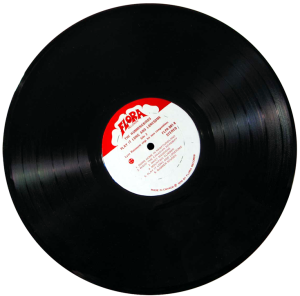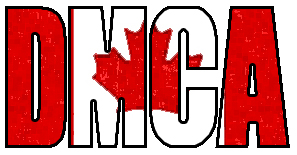our story so far…
If you’re new to music industry news, you should be aware that the Canadian “Big Four” which makes up the Canadian Recording Industry Association (CRIA) is pretty much the same as the American “Big Four” or the Recording Industry Association of America (RIAA). The Canadian corporations are all branch plants of the American mother companies.
Before the rise of the Internet these corporations pretty much controlled most music recording and distribution. The Internet has changed things quite a bit. In Canada one very big change has been that 30% of the Canadian recordings are Independent of the CRIA big Four.
This is a serious threat to these industries. In the United States the massive media conglomerates including the RIAA and the film Industry equivalent, the Motion Picture Association of America MPAA have successfully lobbied the American Government to make laws beneficial to their business interests in the form of the Digital Millenium Copyright Act, as well as prosecuting the secret trade negotiations called the Anti-Counterfeiting Trade Agreement (ACTA)
How does this affect Canada?
The Canadian government has introduced new copyright legislation called Bill C-32 The Copyright Modernization Act into our federal legislature. The same way that the Canadian CRIA branch plants mirror the American mother companies, the American DMCA is mirrored in the proposed Bill C-32.
The so-called copyright reforms are beneficial to the corporations but not to consumers. In order to justify this the corporations attempt to occupy the high moral ground by using the argument that the labels are pushing this copyright legislation in order to benefit the artists. They claim that piracy — a word that is used to lump together activities from personal format shifting to commercial bootlegging– takes money away from the artists.
There is a wide spectrum of recording artists. At the one extreme there are the entry level acts, in the middle you have struggling artists and at the far end you’ll find the tiny percentage of stars.
Stars may have the opportunity to renegotiate their contract, or even to dictate terms. None of the other artists are able to do this because the record companies have traditionally held a disproportionate amount of power by virtue of controlling recording and distribution channels.
Eminem is a star. How does Universal Music treat him?
Last week the music industry was shaken by court decision on a lawsuit. Universal Music, one of the big four record companies. has been ordered to distribute more of the money collected in royalties to the rap star Eminem.
The Star: Court ruling in Eminem case may raise pay for digital downloads
This article reveals some really interesting things.
Universal argued that Eminem should be paid a standard 18 per cent royalty rate for those sales, as he is for physical copies
are you kidding me?
18% for digital downloads?
FBT contended that providing a song to iTunes was actually a third-party licensing situation, similar to film and TV deals, which calls for a 50 per cent royalty rate.
The thing about digital distribution is that it costs next to nothing.
Once the initial costs are paid — recording, promotion — the actual distribution costs is free. The income is pure profit.
Universal said it will petition for a rehearing.
Universal is unwilling to give creator Eminem 50% of the profits.
This record company is going to go back to court and fight this.
I have to wonder how the mid range recording artists make out. Or the little guys.
Though the suit centered on details in Eminem’s contract, the basic principles involved could be relevant for other acts, especially those with deals made before the advent of digital downloading. Stiffelman and other experts said most newer artists have contracts that specify compensation for downloads.
Do these newer artists get 50% of the profit from downloads?
Or 18%?
or less?
I don’t know, but if 18% is the most a star like Eminem was able to negotiate, 18% is probably the high end.
The Motown Alumni Association, whose membership includes Martha Reeves and the Four Tops, had filed an amicus brief on FBT’s behalf.
“All the Motown artists who now receive a penny (per download) may be in a position to negotiate a new royalty because of this decision,” Martin said.
Motown artists have been enjoying a royalty of one penny a download.
1¢ per download → Artist 68¢ per download → Record Company
The Artist wrote and performed the songs.
The Record Company fronted the money for studio time, promotion and distribution (most probably all recouped from the artist portion of royalty over time).
After recording is done, digital distribution costs next to nothing.
Which is why personal copying and online music and movie sharing is so nearly universal. It costs next to nothing.
Yet a record company like Universal would rather fight their own artists tooth and nail than share the proceeds of sales with the artists in anything like an equitable fashion.
And of course I also wonder what the record company contributes that justifies a cut as high as 50% on a download.
Is it any wonder musicians are choosing to go Independent?

All the so called copyright “reforms” — the DMCA, the DEAct, ACTA and our very own Canadian DMCA, Bill C-32 — exist to legislate anti progress. They want to protect the imbalance of power recording companies had over creators in the latter part of the 20th century.
They want to change the laws to take away the freedom of choice that technological progress has brought creators.
Canada needs copyright law that will help creators, not corporations.
[Thanks to Jason Koblovsky for the heads up]
Image credit:
Eminem in Concert photo by Andy Sternberg under a Creative Commons Attribution Non-Commercial Share Alike License



[…] This post was mentioned on Twitter by Laurel L. Russwurm, Hedi Marks. Hedi Marks said: artists and record companies « Oh! Canada: Last week the music industry was shaken by court decision on a lawsuit…. http://bit.ly/99zLch […]
[…] —Artists and Record Companies […]
[…] not get enough of a cut from the record companies who are just interested in profits. Eminem only makes 18% of the profits from the sale of his CDs. And he is a very high end performer. How much does a low […]